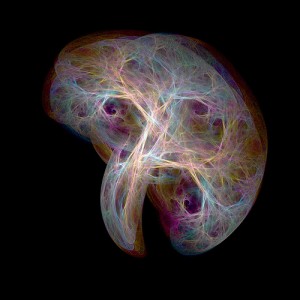 When a person suffers from traumatic brain injury (TBI), one of the most common and significant side effects the patient can experience is a sleep disorder. TBI causes the biological and electrical rhythm of sleep to be interrupted. The patient may experience difficulty sleeping, an altered or changing sleep pattern, or even the need to sleep for unusually short or long periods after the injury has occurred. A traumatic brain injury also affects an individual’s ability to control their breathing, dreaming, and leg movements during sleep.
When a person suffers from traumatic brain injury (TBI), one of the most common and significant side effects the patient can experience is a sleep disorder. TBI causes the biological and electrical rhythm of sleep to be interrupted. The patient may experience difficulty sleeping, an altered or changing sleep pattern, or even the need to sleep for unusually short or long periods after the injury has occurred. A traumatic brain injury also affects an individual’s ability to control their breathing, dreaming, and leg movements during sleep.
Current Studies
Recently, researchers have found that almost half of those who are suffering from a traumatic brain injury may have a sleep disorder, with the leading cause being obstructive sleep apnea. Another study concluded that after a traumatic brain injury has occurred, especially a mild injury, individuals often experience sleep disturbance, complicating recovery from the injury as well as relief from the symptoms. Currently, researchers are coming to the realization that mild traumatic brain injuries are more likely to result in sleep disorders than severe injuries.
Effects of Sleep Disorders
When an individual does not receive the proper amount of sleep to allow the body to recharge, cognitive ability and function is decreased, while an increase in irritability becomes prevalent. Patients with a sleep disorder experience symptoms very similar to a traumatic brain injury, complicating and possibly exacerbating the effects of the injury itself.
Traumatic brain injuries usually occur due to a fall or a collision. When these types of incidents occur, some part of the body is usually hurt or strained. Sleep allows the body to rest and rebuild itself, repairing injured muscles. However, a sleep disorder does not allow this process to happen.
Increased fatigue also affects memory. Those who experience traumatic brain injury and memory loss or impairment from lack of sleep may have increased memory problems.
Treatment
Most individuals with sleeping disorders are able to take medication prescribed by their doctors to help them sleep. However, patients with TBI may find their doctors are reluctant to prescribe these types of medicines. If a prescription is necessary, a low-dose anti-depressant medication may help the individual fall asleep easier, stay asleep, and sleep more soundly. Unfortunately, the medications may also make it harder for the patient to wake up.
Consistency is another way to help battle a sleeping disorder and the patient should go to bed and wake up at the same times every day. This helps to restore natural sleep rhythms. It is also wise to avoid caffeine and exercise later in the day.
Contact Us
If you or someone you love has suffered from a traumatic brain injury or you would like more information regarding sleep disorders due to traumatic brain injury, contact our office. We have caring, experienced attorneys who will work with you and provide you with a free consultation. Should you decide to file a claim, we will make sure that you are fully compensated for medical bills, temporary or permanent loss of work, as well as any pain and suffering you experience.



I would like know is Trauma Brain Injury (TBI) related Sleep Apnea, If so ,what Veterans Claims cases would this go under (38 CFR)